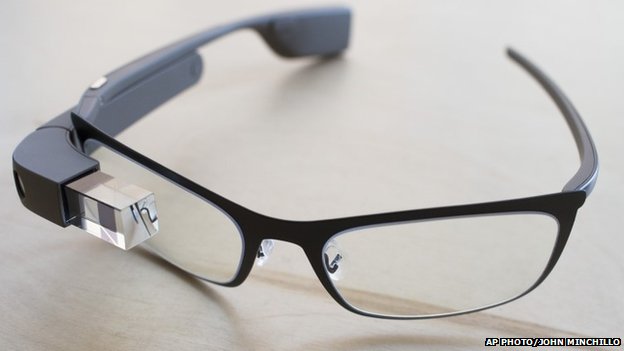Google Glass will go on sale to the US public on 15 April for a single day, the company has announced.
Users must be 18 years old and are required to fill in an online form in order to be eligible to buy the device.
The eyewear will cost $1,500 (£894) and the BBC understands UK developers may have access as early as May.
The high price will be likely to deter many enthusiasts, who may be forced to wait for price reductions.
The tech giant sold the device to 8,000 individuals in 2013 as part of their Explorer programme. Google will now give more people the opportunity to test the computer, a sign that the company is getting closer to an official release.
The BBC understands that UK developers may have access to the device as early as May or June, making Britain the first country outside the US to gain additional prototypes.
The Glass team said they were “excited to meet our new Explorers, and we can’t wait to hear your thoughts about Glass.”
‘Limited functionality’
While the £894 asking price seems high, Steven Graves, deputy editor ofStuff.tv, told the BBC this was likely to change: “The thing you have to bear in mind is it is still in development and that people are buying into that development.
“I think it’s quite a high price but that doesn’t necessarily reflect what the price will be when it is eventually released to consumers. At this stage they just want to get it in a few more hands.”
Google Glass will be sold on a first-come, first-served basis after aninitial online sign-up process.
Evan Kypreos, editor of TrustedReviews, said: “$1,500 is far too expensive for something that has very limited functionality at the moment.
“Google is targeting just a few early adopters to understand how to further develop Glass and doesn’t actually want average Joes using it until it’s a much more mature product.
“It’s similar to how mobile phones came about,” explains Mr Kypreos. “In the 80s, only a handful of people used them. They were bulky, expensive and could only be used to make calls. Thirty years later and most of the population has a smartphone that can do pretty much anything a PC can.”
Early adopters of the wearable headset include BBC’s Rory Cellan-Jones, who has been blogging about his experience.
Source: BBC


